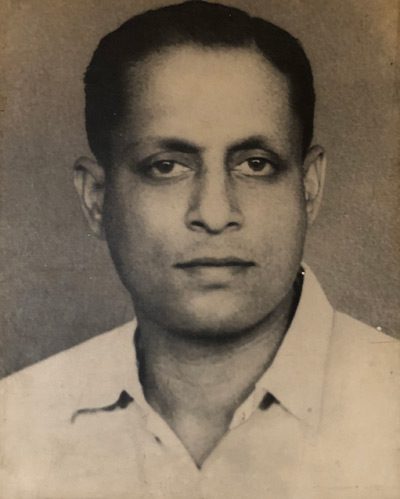The “When world’s largest re-insurer sitting in Munich informs the claims manager in the Middle-East that if “Bhatawadekar” is handling the claim they have no questions or a risk manager/underwriter sitting in Zurich appoints you for inspection of Russian Nuclear power plant under construction, one has probably acquired the highest certification as a company may aspire for. I don’t think any other loss adjusting firm in India can say this about themselves,” Milind Bhatawadekar spoke to Mohit Kumar, Editor of Newsinterpretation in an exclusive interview.
Introduction
Milind Bhatawadekar is the Managing Director of Bhatawadekar Insurance Surveyors and Loss Assessors, India’s first engineering loss adjusters. The company started its export of services in the year 1961. Hence, the journey of the company began in ’50s.

In 1954, facing a claim for a breakdown of a diesel engine insurers were looking for engineers exposed to diesel engines. The mantle of assessing that loss fell upon the late Shri H.T Bhatawadekar. Under the second generation of the founder, Bhatawadekar has grown in reputation and reach. The company worked in approximately 40 nations for either loss adjustment or risk inspection jobs. Milind explains the cases he resolved in his tenure as the Managing Director of the company.
How Did the Insurance Company Saved Millions?
“Many cases are close to my heart”, Milind Explains.
“If not for the size but complexity. One which stands out in my memory was on a large power plant. There was a cover for Advance Loss Profit and a claim was lodged under that policy. Delay in commissioning of the project was expected to be 22 days costing Rs.380.00 Crores. Hence, one month after (another) loss adjuster was already appointed and had mentioned that there was no case for a claim, we were appointed on goading of the Insured, who after many meetings and discussions could convince the insurer’s executives that a review was warranted, Milind explains the case.
Moreover, we realized that the loss generated was not genuine and tenable. As appointed. The lodged claim was very huge. It was in excess of Rs.425.00 Crores in 2010- including the cost of the damaged plant.
Our team quickly identified the bottlenecks, areas of concern and there were many and possible solutions.
We briefed (PSU) Insurer’s executives- who wanted us to take decisions & solve the problems to minimize the loss, but not keep them in loop- as the Public Sector Insurers cannot decide anything fast – their systems being built that way.
Additionally, a quick decision was needed. The consignment weighed approximately 750 tons. then there were bound to be delays as in India the road on which these consignments had to travel would have gone underwater in monsoon.
My colleague offered incentives to the Chinese suppliers. Without permission from insurers, he explained to me the difficulties of hiring the aeroplane – (the world’s largest and one of the only two such planes in the world) for air-freighting. Without consulting the Insurers, I asked him to hire it for a continuous time charter (instead of an individual voyage) committing the Insurer’s Rs.28.00 Crores. He did so promptly.
Since, the 7 consignments were transported in time, installed in time. In just 122 days the damaged m/c was commissioned. This saved Rs.280.00 Crores for insurers. When I presented this case study to IMIA ( International Association of Engineering Insurers) our international profile went up man notches.” Milind elaborates with passion.
Insurance Survey on Foreign Shores
Again there are many- from the windmills installed in the USA and insured by a Danish (Denmark-based) Insurer to claims in Copper mines and Coal mines in Australia and Paper plant in Kota Kinabalu in Malaysia to Cement plant in Kenya, transmission lines in Sudan to offshore gas processing plant in Mussandam in Oman, very large flood losses (above US $ 800.00 Million) in history’s worst floods in Thailand one can cite many.
Milind feels that all cases are dear to one’s heart- as these cases expose you to different cultures.
One which stands out is the case in Turkey. A large gearbox was damaged and a Business Interruption claim of ~ Euro 2.00 Million was lodged. A reputed German firm supplied the material. The top executives certified the damage caused to the gearbox. They had confirmed the admissibility of the loss. The local adjuster certified the claim and its admissibility. The re-insurers sought our opinion. They analyzed the claim presented. Therefore, they understood typical German practices while submitting the documents/ reports.
When the German supplier took time-related to the specialized products. We realized something amiss planned. When dug deeper, visited the German supplier’s Bavarian plant. We discussed the issues and confirmed that the entire supply was received free of cost. All the certificates issued. Hence, it ensured that the business interruption claim passed.
It ensured the downtime of the replacement of the damaged parts. Knowing finer nuances and being sensitive to many trends and behavioural patterns we could get the liability reduced to NIL from Euro $ 2.00 Million. It’s a fact that one is handling India’s largest loss above Rs.1,200.00 Crores doesn’t give as much satisfaction as these relatively smaller cases,” Milind explains.
Conclusion
The regulator IRDAI formed a committee in which Milind Bhatawadekar is the form of the committee. Therefore, Milind Bhatawdekar brought the profession to a better-managed and self-regulated body.
He told a lot of unwarranted and wrong practices followed in the profession. He preceded being the justification of the wrong practices. “Utmost good faith” which is the foundation of an insurance contract. The surveyors expected to show the insurance contract mentioned. Hence, image and credibility of both the insurers and the loss adjuster is probably all-time low. Thus, he strongly believes that this needs to change.





